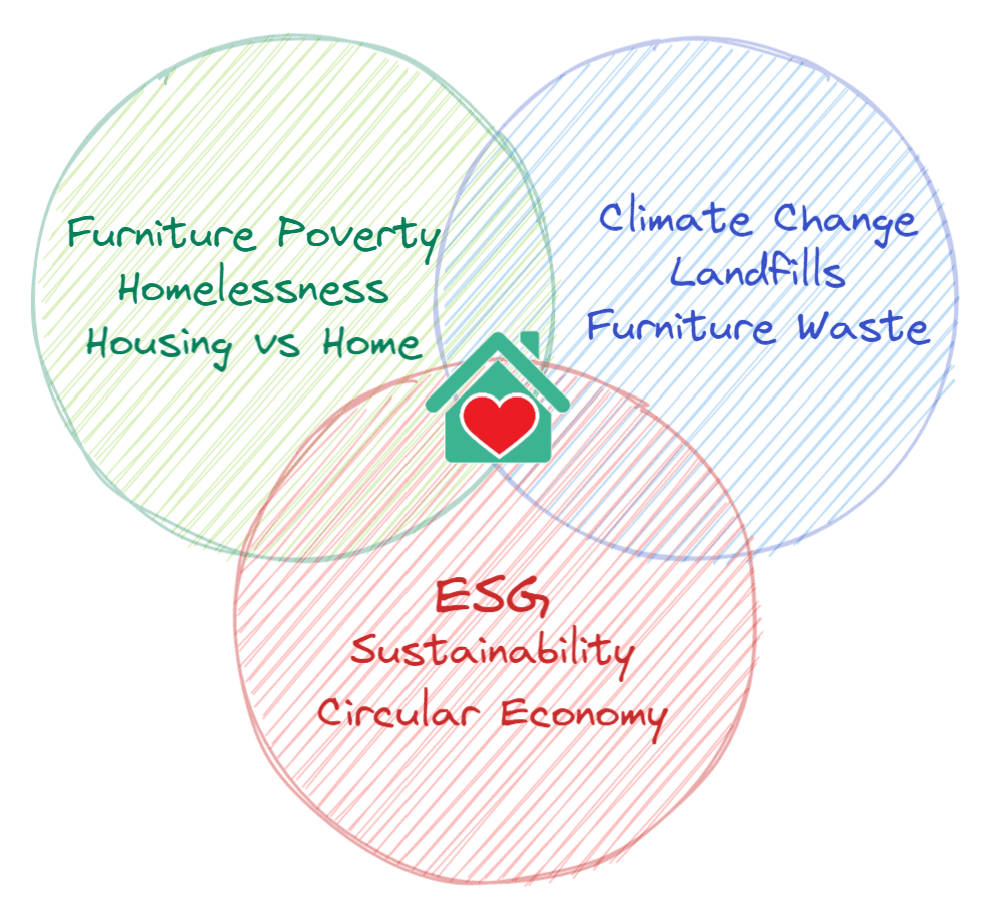
Retailers for Good: How excess inventory can transform lives
A win-win solution for retailers and communities The Housing First approach has proven effective in addressing chronic homelessness, but providing empty housing
As I embark upon my 10th year with Furniture Bank and commemorate our 25 years of commitment to the community, I’m thrilled to look back on our successes and inspired about what we will be able to do over the next 25 years.
Addressing furniture poverty and the environmental consequences of waste in Canada isn’t always comfortable, but as we look to mitigate our current climate crisis and the ramifications of living in poverty, we must consider the following:

The good news is that this is one social and environmental crisis that CAN be solved when businesses and consumers make intentional choices to keep good things out of landfill. In donating furniture and home goods to Furniture Bank, businesses and households can have a direct and immediate impact on their communities and invest in the critical step in the homelessness equation by turning empty housing in furnished homes (what we call Homing).
We send out updates every quarter or so on our progress and your impact as supporters.

A win-win solution for retailers and communities The Housing First approach has proven effective in addressing chronic homelessness, but providing empty housing

In our continuous effort to not only transform homes but also lives and the environment, Furniture Bank embarked on a rigorous Social Return

The United Nations’ Sustainable Development Goals offers a well-defined global framework for addressing the most pressing social, economic, and environmental challenges. By
FURNITURE BANK | Registered Charity | #87253 1843 RR0001
Copyright © FURNITURE BANK 2023. All Rights Reserved.
Our Hours
Mon-Fri: 8:30am – 4pm
Walk-ins Monday to Friday, 9am – 3pm
Appointments Monday to Friday, 9am – 2pm